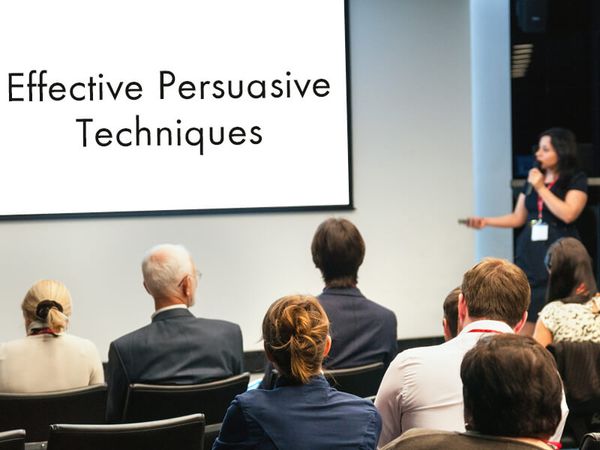
5 Signs That You Might Have Impostor Syndrome

Table of Contents
Having impressive persuasion skills can help to accomplish outstanding goals in a short period of time. Just think about how many outstanding examples of people possessing remarkable persuasion skills we have in human history: Buddha, Mahatma Gandhi, Martin Luther King, and even Hitler. Of course, all of these people also possessed unique personalities, which can’t be copied. However, persuasive techniques that they used can be learned. You may think that you don’t need this, but you may be mistaken. If you’re a college student, you’ll need to work with persuasive essays. If you’re a mature person you should know how to prove your point and complete the things you want to be done with the help of other people. Just make sure to observe a couple of simple rules before applying these techniques in your daily life:
Emotions open all doors. When a person gets emotional, rationality fades (the degree to which rationality fades depends on the intensity of emotions, which one experiences) and he/she perceives information much less critically. This persuasive technique is often used in commercials. For instance, when you look at the happy person eating a tasty chocolate bar of Hershey's, you’re associating Hershey's with good emotions, which increases your chances of buying a piece of this chocolate for yourself or your family. This trick is also used in political propaganda, when one country shows the negative image of other country’s citizens and demonstrates them as evil.
Not all people get emotional that easily. For official and academic environments, you will need something completely different, which is appealing to logic. Appealing to logic includes supporting your claims with data, opinions, solid evidence and facts. Arguing with numbers and facts is a more difficult task than manipulating emotions.
It doesn’t mean that you need to force anyone to agree with you. It just means that you need to make your audience say “yes” as many times as you can. For instance, if you’re making a speech against wars, and your audience consists of pro-war people, don’t argue with them or ask questions like, “Do you have even a drop of compassion?” Better, ask them small questions that they can answer only with “yes”. Life is a miracle, isn’t it? Each life is precious, right? Would you like your family to be safe? If they answer “yes” two or more times, it will become more difficult for them to say “no”. As a result, it will be much easier for these people to agree with negative opinions about war.
Sometimes persuasion is a talent, but most times, it’s a skill. And you have all the powers to master this skill if you desire so.
Get a custom-written paper